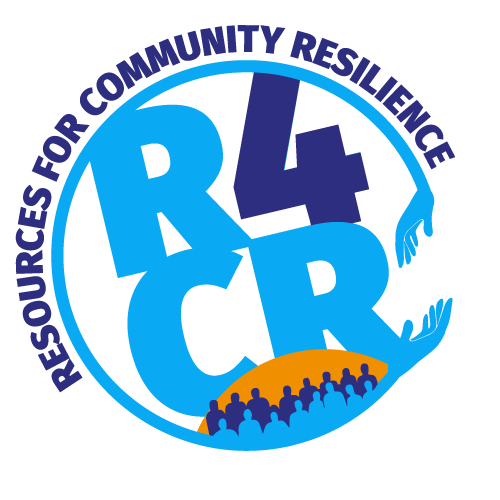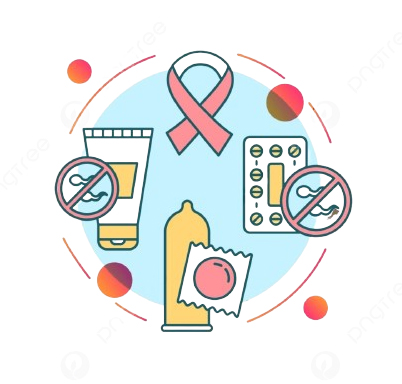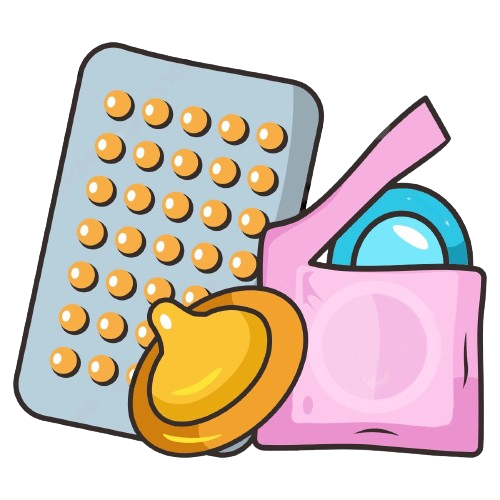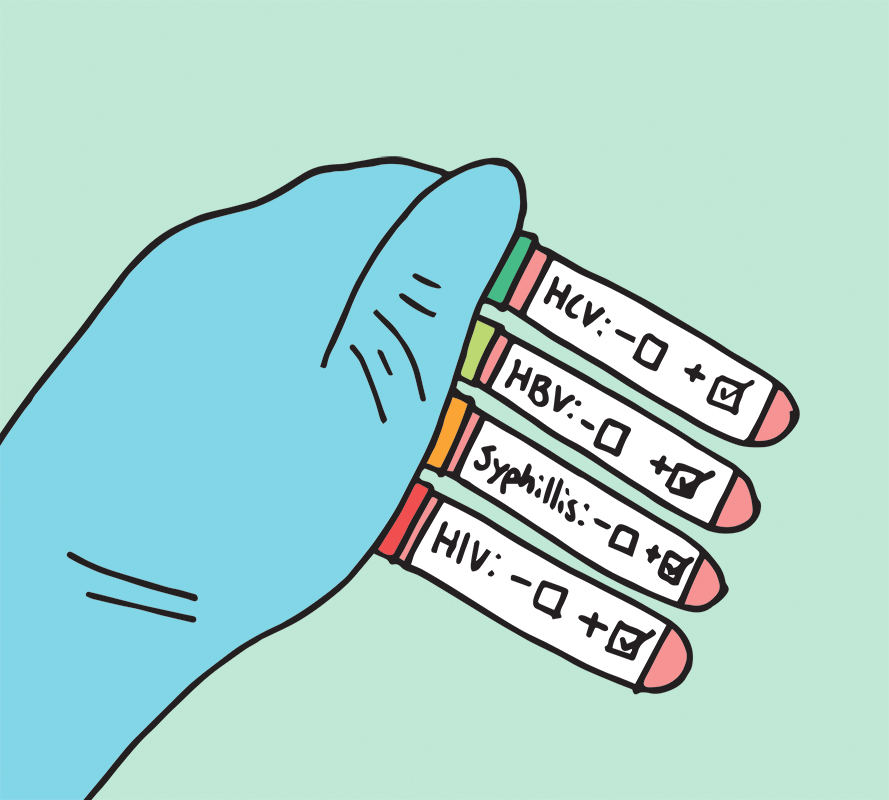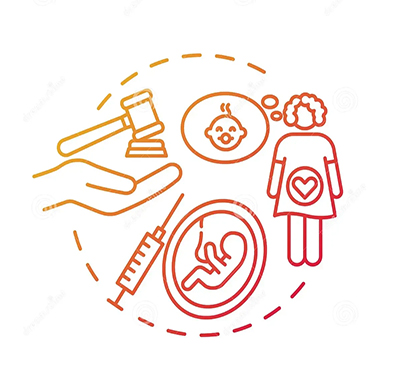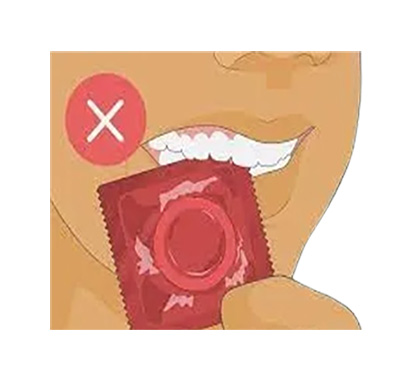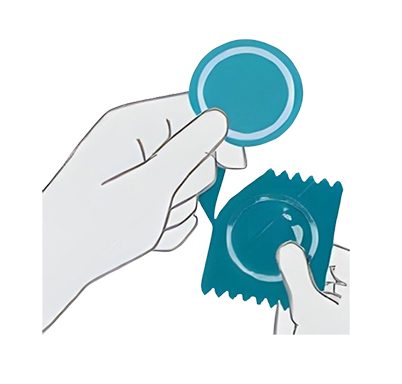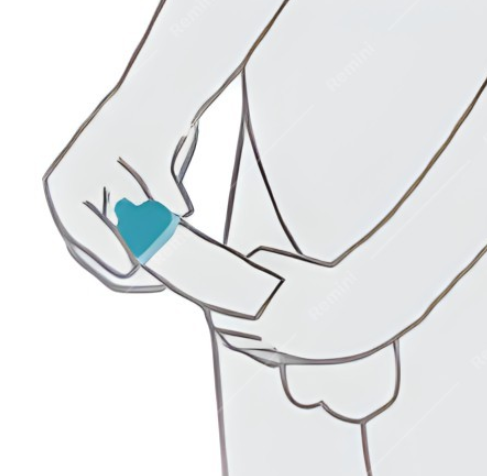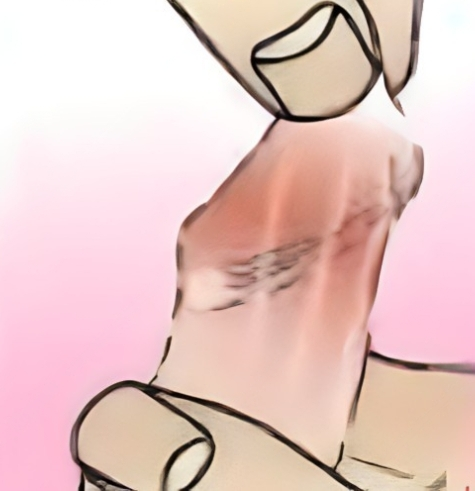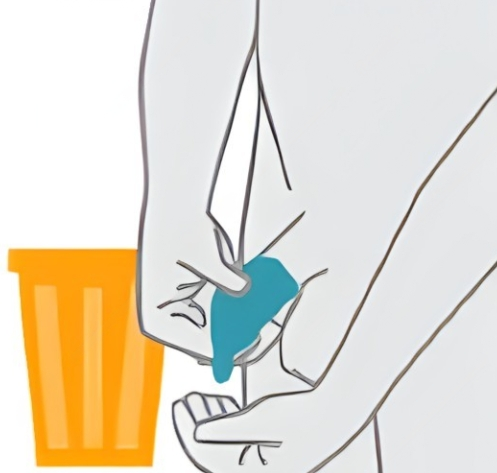Sexual and Reproductive Health (SRH) in Sint Maarten
What is Sexual and Reproductive Health (SRH)?
Common Sexually Transmitted Infections (STIs)
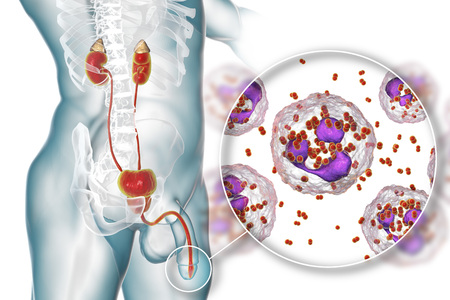
Chlamydia
Chlamydia is a bacterial infection that can affect the genitals, rectum, and throat. It often presents with no symptoms but can lead to complications such as pelvic inflammatory disease (PID) and infertility if left untreated.

Gonorrhea
Gonorrhea is another bacterial infection that primarily affects the genitals, rectum, and throat. Symptoms may include painful urination, abnormal discharge, and genital itching. If left untreated, gonorrhea can lead to serious complications, including infertility and pelvic inflammatory disease.
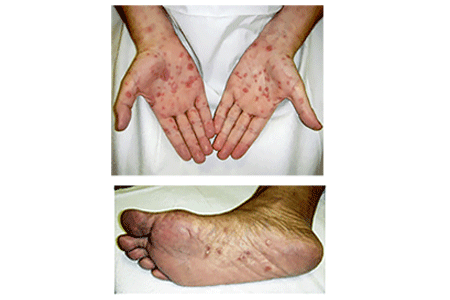
Syphilis
Syphilis is a bacterial infection that progresses in stages, each with its own set of symptoms. Primary syphilis often presents with a painless sore (chancre) at the site of infection, while secondary syphilis may cause a rash, fever, and flu-like symptoms. If left untreated, syphilis can lead to severe health complications, including damage to the heart, brain, and nervous system.
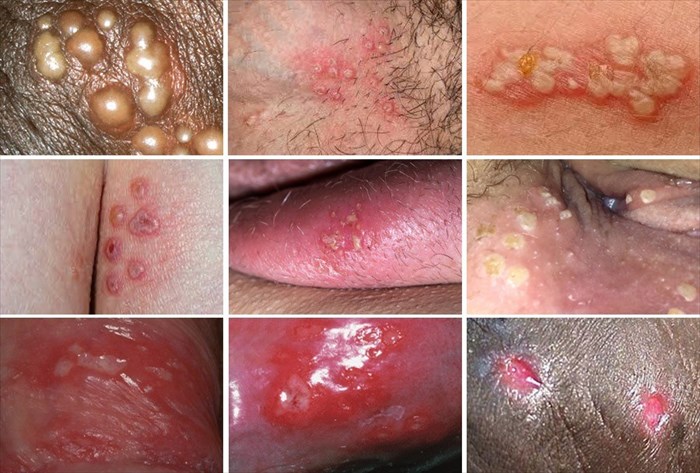
Genital herpes
Genital herpes is caused by the herpes simplex virus (HSV) and presents with painful blisters or sores on the genitals, anus, or mouth. While there is no cure for herpes, antiviral medications can help manage symptoms and reduce the frequency of outbreaks.
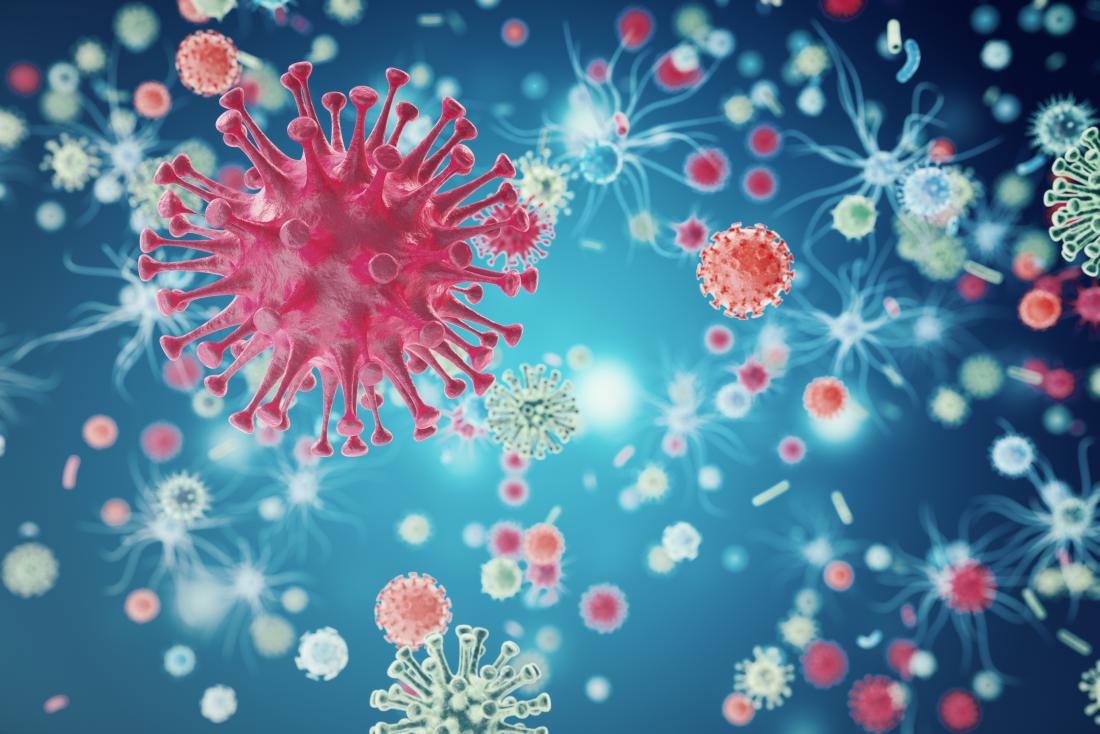
HIV
HIV (human immunodeficiency virus) attacks the immune system, weakening the body’s ability to fight off infections and diseases. It is primarily transmitted through unprotected sexual intercourse, sharing needles, or from mother to child during childbirth or breastfeeding. Without treatment, HIV can progress to AIDS (acquired immunodeficiency syndrome), a condition characterized by severe immune system damage.
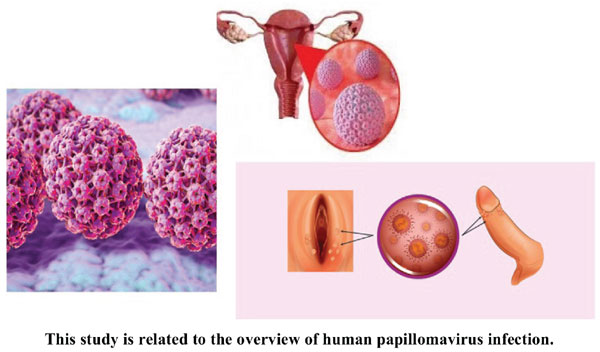
HPV
HPV (Human Papillomavirus) is a common virus that can cause genital warts and certain types of cancer, including cervical, anal, and throat cancer. While many HPV infections resolve on their own, persistent infections can increase the risk of developing cancer. Vaccination against HPV is available and recommended for both males and females to prevent infection.
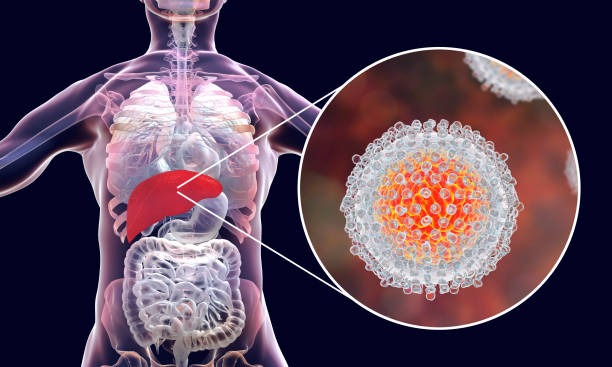
Hepatitis B & C
Viral hepatitis refers to hepatitis B and C, viral infections that primarily affect the liver. Hepatitis B and C are transmitted through contact with infected blood or bodily fluids, such as through unprotected sexual intercourse or sharing needles. Chronic hepatitis B and C can lead to liver cirrhosis, liver failure, and liver cancer if left untreated.
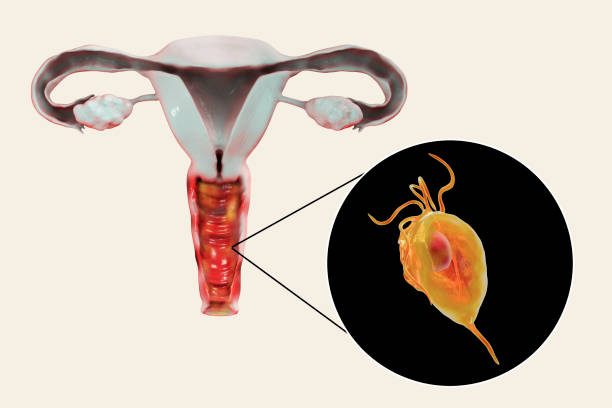
Trichomoniasis
Trichomoniasis is a parasitic infection caused by the protozoan parasite Trichomonas vaginalis. It commonly presents with genital itching, burning, and a frothy vaginal discharge. While trichomoniasis is treatable with antibiotics, it can lead to complications such as pelvic inflammatory disease (PID) if left untreated.
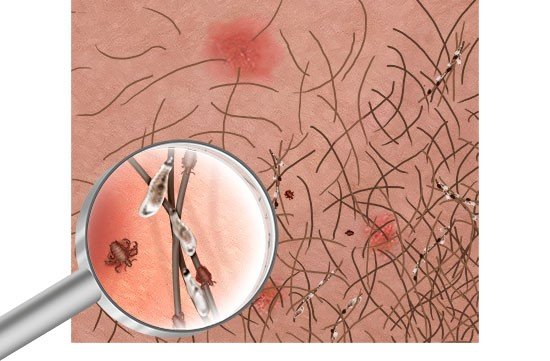
Pubic Lice (Crabs)
Pubic Lice (Crabs) are parasitic insects that infest the pubic hair and cause itching and irritation. They are typically transmitted through close personal contact, such as sexual intercourse. Pubic lice can be treated with over-the-counter or prescription medications.
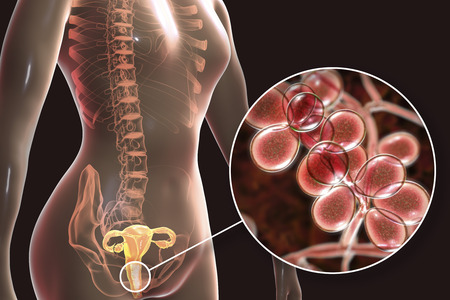
Candida (Yeast Infection)
Candida (Yeast Infection) commonly known as a yeast infection, is caused by an overgrowth of yeast in the vagina. It can cause symptoms such as itching, burning, and abnormal vaginal discharge. Yeast infections are typically treated with antifungal medications.
Seeking Help and Support ?
What’s the T on condoms?

- STI Prevention: Condoms act as a barrier, preventing the exchange of bodily fluids such as semen, vaginal fluids, and blood, which can transmit STIs. Using condoms consistently and correctly can significantly reduce the risk of contracting or spreading STIs, including HIV, chlamydia, gonorrhea, syphilis, and genital herpes.
- Pregnancy Prevention : Condoms are one of the most effective methods of contraception for preventing unintended pregnancies when used correctly. They create a barrier that blocks sperm from entering the vagina, thus preventing fertilization of the egg. Condoms are easily accessible and do not require a prescription, making them a convenient option for individuals seeking contraception.
- Dual Protection : Condoms provide dual protection against both STIs and pregnancy, making them an ideal choice for individuals who are sexually active and want to protect themselves and their partners from both outcomes.
How to Use a Condom Correctly:
